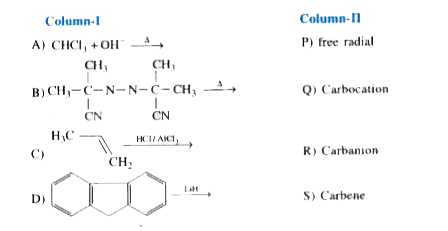The chemical behaviour of dihydrogen is determined, to a large extent, by bond dissociation enthalpy. The H-H bond dissociation enthalpy is the highest for a single bond between two atoms of any element. What inferences would you draw from this fact? It is because of this factor that the dissociation of dihydrogen into its atoms is only 0.081% around 2000K which increases to 95.5% at 5000K. Also, it is relatively inert at room temperature due to the high H-H bond enthalpy. Thus the atomic hydrogen is produced at a high temperature in an electric arc or under ultraviolet radiations. Since its orbital is incomplete with Is' electronic configuration, it does combine with almost all the elements.
At which of the following temperatures, the dissociation of dihydrogen into its atoms will be maximum ?Solution in Telugu
2500K
3000K
3500K
4000K
The correct Answer is:D
Step by step video, text & image solution for The chemical behaviour of dihydrogen is determined, to a large extent, by bond dissociation enthalpy. The H-H bond dissociation enthalpy is the highest for a single bond between two atoms of any element. What inferences would you draw from this fact? It is because of this factor that the dissociation of dihydrogen into its atoms is only 0.081% around 2000K which increases to 95.5% at 5000K. Also, it is relatively inert at room temperature due to the high H-H bond enthalpy. Thus the atomic hydrogen is produced at a high temperature in an electric arc or under ultraviolet radiations. Since its orbital is incomplete with Is' electronic configuration, it does combine with almost all the elements. At which of the following temperatures, the dissociation of dihydrogen into its atoms will be maximum ? by Chemistry experts to help you in doubts & scoring excellent marks in Class 11 exams.
Updated on:21/07/2023Topper's Solved these Questions
- HYDROGEN AND ITS COMPOUNDSBOOK - AAKASH SERIESCHAPTER - HYDROGEN AND ITS COMPOUNDSEXERCISE - PROBLEMS
21 Videos
- HYDROGEN AND ITS COMPOUNDSBOOK - AAKASH SERIESCHAPTER - HYDROGEN AND ITS COMPOUNDSEXERCISE - EXERCISE -1.1.1
13 Videos
- HYDROGEN AND ITS COMPOUNDSBOOK - AAKASH SERIESCHAPTER - HYDROGEN AND ITS COMPOUNDSEXERCISE - OBJECTIVE EXERCISE - 3
48 Videos
- HYDROCARBONSBOOK - AAKASH SERIESCHAPTER - HYDROCARBONSEXERCISE - ADDITIONAL PRACTICE SHEET ( LEVEL-II (PRACTICE SHEET (ADVANCED) (MATRIX MATCHING TYPE QUESTIONS)))
5 Videos
- IONIC EQUILIBRIUM BOOK - AAKASH SERIESCHAPTER - IONIC EQUILIBRIUM EXERCISE - ADDITIONAL PRACTICE EXERCISE (LEVEL -II PRACTICE SHEET (ADVANCED) (Integer Type Questions))
8 Videos
Similar Questions
How many fundamental particles are present in the radioactive isotope of hydrogen?
View SolutionDiscuss briefly the position of hydrogen in the periodic table.
View SolutionBond length in H2 molecule is 'x' nm. The covalent radius of deuterium is
View SolutionMatch the intermediates formed in the reaction.

View SolutionA certain weak acid has Ka,=10−5. If the equilibrium constant for is its reaction with a strong base is repesented as y×10y then find the value of y.
View SolutionWhich of the following has the highest bond dissociation enthalpy?
View SolutionBond dissociation enthalpy and bond enthalpy are not the same for
View SolutionAssertion : Dihydrogen is inert at room temperature. Reason : The H - H bond dissociation enthalpy is the highest for a single bond between two atoms of any element.
View SolutionThe bond dissociation enthalpy of dihydrogen at 298 K is ___________.
View Solutionआबन्ध वियोजन ऊर्जा या बंध एन्थैल्पी किसे कहते है ?
View Solutionसर्वाधिक बन्ध वियोजन एन्थैल्पी है -
View SolutionWhich bond between two at atoms has the highest bond dissociation enthalpy?
View SolutionIn water two O–H bond dissociation enthalpies are not identical.
View SolutionThe H-H bond dissociation enthalpy of H_2 is _________, is the highest for a single bond between two atoms of any elements.
View SolutionWhen is bond dissociation enthalpy equal to bond enthalpy?
View Solution
